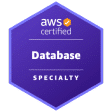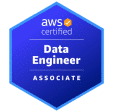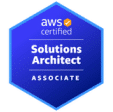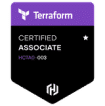Data is the lifeblood of every thriving business. Harnessing the power of data can catapult a company to new heights. However, the growing importance of data has posed new challenges, especially when it comes to finding the right experts to manage and interpret it. So, how do you navigate this landscape and select the ideal Data Solutions Agency?
This blog will cover:
- What a Data Solutions Agency (DSA) is?
- The differences between a data solutions agency and a data solutions partner?
- Why are agencies better than freelancers for complex data projects?
- What factors to consider to give your data projects the best possible chance for success?

Understanding the Significance of Data Solutions Agencies
With so many technologies that can connect your data sources to internal platforms, data storage services, automate data sourcing, optimize database performance, ensure high-quality data, and provide your business with custom data solutions, choosing a Data Solutions Agency can be long and arduous.
A Data Solutions Agency doesn’t just crunch numbers; it breathes life into them, translating complex data sets into actionable business insights. While freelance professionals or in-house teams may bring individual expertise, an agency offers a holistic approach, blending various expertise to offer seamless, scalable, and efficient solutions. In an age where data-driven decisions are paramount, an agency can be your trusted navigator.
What is a Data Solutions Agency?
- Primary Role: As the name suggests, a Data Solutions Agency is focused on providing specific data-related solutions, often in tools, software, or platforms. Its primary goal is to address technical and operational challenges related to data.
- Services: These can include data integration, data storage solutions, building custom data analytics tools, setting up data visualization dashboards, implementing data security protocols, etc.
- Deliverables: Often tangible, like software platforms, tools, dashboards, or data infrastructure setups.
- Client Interactions: While they engage with clients to understand requirements and provide tailored solutions, the depth of strategic business discussions might be less than that of a consulting agency.
- Data Solution Examples: Setting up data warehouses, designing data visualization dashboards, optimizing databases, planning for database migration, implementing data integration, evaluating data security, quality, and governance, or developing custom data analytics platforms.
What Are The Differences Between A Data Solutions Agency and Data Solutions Partner?
- Data Solutions Agency:
- Orientation: Typically has a service or product-focused orientation. Their primary role is to offer specific services or solutions in data.
- Engagement Model: Engagements might be project-based, providing a service, solution, or product for a specified project or duration.
- Relationship: The relationship with clients might be more transactional, centered around delivering specific solutions or services.
- Examples: Companies that provide data integration services, data warehousing services, database administration, build custom data solutions with AI or Machine Learning, or offer data visualization services.
- Data Solutions Partner:
- Orientation: Emphasizes a collaborative and often longer-term relationship with clients. While they also provide data solutions, there’s a stronger emphasis on mutual growth, collaboration, and sustained engagement.
- Engagement Model: Engagements will likely be longer-term, with the partner involved in multiple aspects of the client’s data journey, from strategy to implementation and continuous improvement.
- Relationship: The relationship is built on trust, mutual growth, and a deep understanding of the client’s business. They work closely with the client, often integrating themselves as an extension of the client’s team.
- Examples: A company that provides data storage solutions and advises on data strategy, helps with data governance, and continuously works with the client to adapt to evolving data needs.
A Data Solutions Agency is service-oriented for a certain period, while a Data Solutions Partner focuses on a longer-term relationship. So, why not hire a freelancer or a full-time employee?

Why Are Agencies Better Than Freelancers or Full-Time Employees?
Data solutions require expertise, adaptability, and a long-term vision. While freelancers or full-time employees have their benefits, a dedicated Data Solutions Agency offers unmatched advantages. Here’s why:
- Holistic Expertise: Data solutions agencies bring together a diverse team of experts, each specializing in different facets of data management – from architecture to warehousing. You tap into a reservoir of multifaceted expertise with an agency, something a single freelancer or employee might not offer.
- Cost-Efficient: While hiring an agency might seem more expensive initially, the long-term costs often favor agencies. Freelancers might move on to other projects, and full-time employees require benefits, training, and resources. Agencies, on the other hand, offer a fixed-price solution and absorb all related operational costs.
- Scalability: As your business grows, so do your data needs. Agencies have the resources to scale up or down based on your requirements. Hiring more freelancers or employees every time there’s a spike in work can be tedious and costly.
- Continuous Learning & Upgrades: The best Data Solutions Agencies have dedicated resources for training and keeping their teams updated with the latest technological shifts. This ongoing learning ensures that your business always benefits from cutting-edge solutions.
- Accountability & Reliability: Professional agencies are bound by strict contracts and service level agreements (SLAs). They have a reputation to maintain and are often more reliable and accountable than individual freelancers.
- Diverse Technology Partnerships: Agencies often partner with multiple tech vendors, ensuring that you get a solution best suited for your needs rather than a one-size-fits-all approach.
- Focus on Core Competencies: Hiring and managing freelancers or new employees can drain your managerial resources. By entrusting your data needs to an agency, you free up time and resources to focus on what you do best.
- Seamless Collaboration: An established agency has a culture of teamwork. Instead of coordinating with multiple freelancers, you communicate with a single point of contact in an agency, ensuring clarity and seamless project delivery.
The Talent Imbalance: Navigating the Tech Industry’s Recruitment Conundrum
The tech industry is experiencing an unprecedented boom, leading to a surge in demand for specialized skills. However, the supply of seasoned professionals, especially in emerging technologies, has yet to keep pace.

As innovations continue to disrupt traditional business models, companies are in a frenzied race to onboard experts who can navigate the complexities of these advancements. This talent crunch inflates salary expectations and results in a competitive market where organizations often find themselves vying for the same narrow pool of candidates. In such an environment, retaining top-tier tech talent becomes just as challenging as recruiting them.
While freelancers and full-time employees have their place, when it comes to holistic, efficient, and scalable data solutions, partnering with a dedicated agency often emerges as the optimal choice.
Ready to Harness the Power of Data?
Need help navigating the complexities of data solutions. You can turn data into your most valuable asset with the right partner. Connect with our team now and discover how we can elevate your data strategy.
Key Factors to Consider When Selecting a Data Solutions Agency
A. Timing
Whether you’re looking to streamline existing processes or implement a new data-driven strategy, understanding your needs is crucial. Pose questions like: How soon do I need this solution? Can the agency adhere to this timeline? The synchronization of your urgency and the agency’s capacity is pivotal.
B. Standards & Compliance
Chains of regulations bind the world of data and for a good reason. Agencies must respect standards like GDPR, especially when dealing with sensitive customer data. A slip here could be a costly misstep. Ensure your agency is well-versed in these nuances.
C. Technology Roadmap
Data technology isn’t static; it evolves. Partner with an agency that doesn’t just cater to your present but is equipped for your future. Their roadmap should be robust, flexible, and in tune with emerging trends.
D. Data Security
Every data byte is a treasure, and in the wrong hands, it can turn into a ticking bomb. Your chosen agency should have top-notch data storage solutions and impeccable security protocols.
E. Contracts & Documentation
Complex jargon and pages of terms can be daunting. However, clarity here can prevent potential pitfalls. The agency’s Statement of Work should be crystal clear, and their willingness to begin with a Proof of Concept can signify their confidence in their solutions.
F. Reliability & Accuracy
Data errors can cost dearly. Dive deep into the agency’s track record, peruse testimonials, and chat with past clients. Their reliability will be the bedrock of your partnership.
G. Cost & ROI Consideration
Data solutions are an investment, not an expense. However, striking the right balance between cost and value is essential. An exorbitantly priced solution doesn’t guarantee the best outcome, just as a cheap one might not be the most efficient.

Additional Considerations
A. Vendor Relationships
An agency’s relationship with tech vendors can be a window into their operational excellence. Strong ties often signify that the agency is updated and adept at harnessing the best that technology offers.
B. Company Health & Profile
An agency’s stability and track record can significantly indicate its reliability. Look for success stories, case studies, and their general market reputation.
Conclusion
In the vast ocean of data, sailing without an experienced navigator can be perilous. A Data Solutions Agency can be your compass, guiding you toward informed decisions and business growth. Remember, the right partnership can transform data from numbers to actionable, revenue-generating insights. So, when you’re ready to leverage data’s power, ensure you have the right team.
Considering a data-driven overhaul for your business? Reach out to us, and let’s chart a course to success together!







